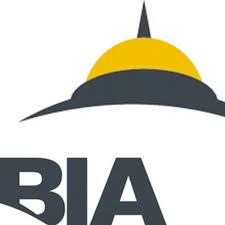Medicaid Expansion Bill Gains Steam in State House

As the bipartisan bill to reauthorize New Hampshire’s Medicaid expansion program, Granite Advantage, moves through the legislature, backers are making a conservative case for the expansion.
Senate President Jeb Bradley (R-Wolfeboro) is one of the bill’s prime sponsors. He says expanding Medicaid has lowered healthcare costs, improved healthcare for Granite Staters, and helped get more people into the workforce.
“The program has worked as intended,” Bradley said.
The Granite Advantage bill, SB 263, won unanimous support in the Senate last month. It’s scheduled for an executive session discussion on Wednesday before the House Health, Human Services and Elderly Affairs Committee. If approved, the bill will then head to the full House for a vote.
Granite Advantage was last reauthorized in 2018 and is set to expire at the end of the year without SB 263’s passage. Enrollment in the program was around 94,000 residents at the start of the year, though the national COVID-19 emergency inflated those numbers. Those figures are expected to return to around 60,000 residents in the coming months.
SB 263 would reauthorize the program and remove the requirement that the legislature pass legislation to reauthorize it every few years, instead relying on a study commission to send an annual report to the legislature reporting on the effectiveness of the program. Even if SB 263 were to pass, the legislature could sunset this program at any time by a vote of the legislature.
According to Bradley, providing coverage through Granite Advantage is taking a bite out of healthcare costs. The program is driving down the cost of uncompensated care hospitals are required to provide to people without insurance. That protects people with private insurance from being stuck picking up the tab when someone without insurance goes to an emergency room for treatment, he said.
“[Uncompensated care] is a hidden tax on any individual or any business with private insurance,” Bradley said.
According to the New Hampshire Hospital Association, Granite Advantage has led to a 63 percent decrease in the number of uninsured people going to emergency rooms. There has also been a 57 percent drop in uninsured people being admitted to hospitals and another 41 percent reduction in the number of outpatient visits by the uninsured.
In 2014, hospitals reported $174 million in uncompensated care costs before Granite Advantage went into effect. In 2021, that figure dropped to $69 million, according to the NHHA.
Sen. Lou D’Allesandro (D-Manchester) said permanently expanding Granite Advantage makes sense beyond the numbers.
“I just feel it’s the right thing to do,” D’Allesandro said. “We take care of a lot of people.
And, he pointed out, the bill does not use any money from the state’s General Fund.
The bill’s costs are 90 percent covered by the federal government. In 2022, Granite Advantage cost $558 million, but the federal government covered $502 million. According to Bradley, the remaining $56 million was paid through healthcare taxes and fees, with money from the state liquor fund also available to cover costs.
New Hampshire Business and Industry Association (BIA) President and CEO Michael Skelton said abandoning Medicaid expansion would hurt both the state’s economy and the people who make New Hampshire’s growing economy possible.
“We benefit from an overall healthier population,” Skelton said. “Hospitals and other caregivers avoid catastrophic loss of revenue, and employers and employees across the state will benefit from individuals being healthy enough to work.”
In addition to the BIA, numerous other NH-based business organizations including the NH Retail Association and several chambers of commerce have advocated for the reauthorization of Medicaid expansion.






